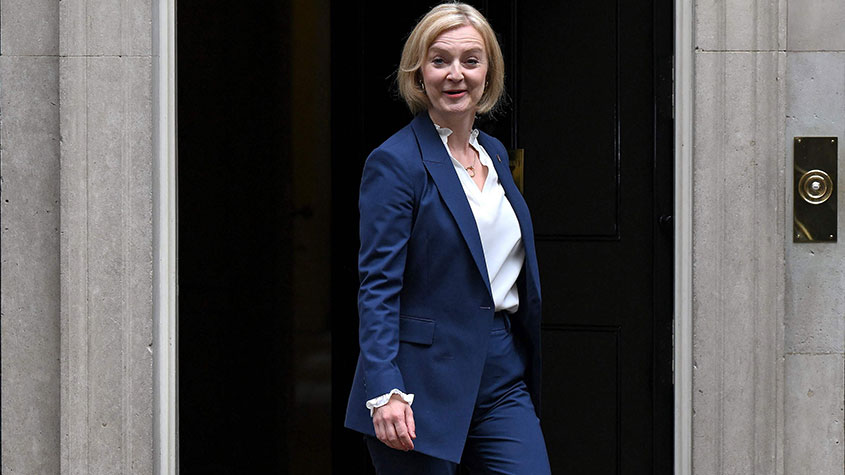Trading: catch this coach company
Bus and coach operator National Express has expanded into promising markets abroad – and it looks cheap


Get the latest financial news, insights and expert analysis from our award-winning MoneyWeek team, to help you understand what really matters when it comes to your finances.
You are now subscribed
Your newsletter sign-up was successful
Want to add more newsletters?

Twice daily
MoneyWeek
Get the latest financial news, insights and expert analysis from our award-winning MoneyWeek team, to help you understand what really matters when it comes to your finances.

Four times a week
Look After My Bills
Sign up to our free money-saving newsletter, filled with the latest news and expert advice to help you find the best tips and deals for managing your bills. Start saving today!
Sometimes the best opportunities come in sectors that sound desperately dull. Take buses and coaches, probably the least exciting form of transport as they are slower than planes and railways and lack the high-tech glamour of ridesharing services. However, they are ideal for short and mid-length journeys since they are cheap, while they are also more environmentally friendly than some other forms of transport. And as far as operators are concerned, they don’t require much capital investment. One of the most attractive coach companies is National Express (LSE: NEX).
National Express is best known for its intercity coach services in Britain, where it accounts for 60% of the scheduled coach-service market; it also operates local buses outside London. In recent years, however, it has moved stealthily into other markets. It now gets 40% of its revenue from the United States, with the UK only in third place behind Spain. Similarly, it gets half its revenue from contract services, notably the lucrative market for operating school buses in the US. This expansion has enabled it to grow its revenue at an annual rate of 7.1% and its earnings per share by 11.4% a year over the past five years.
National Express: a highly profitable operation
While the barriers to entry for potential rivals in bus services are low, National Express has above-average profit margins, which should not only help protect it from any competition but also see it gain market share. National Express also boasts a strong return on capital expenditure of around 12.4%. This enables it to generate large amounts of cash flow that can be returned to shareholders in the form of a dividend and used to expand the business further through intelligent acquisitions. National Express made several investments last year, notably the purchase of a 60% stake in America’s WeDriveU.
MoneyWeek
Subscribe to MoneyWeek today and get your first six magazine issues absolutely FREE

Sign up to Money Morning
Don't miss the latest investment and personal finances news, market analysis, plus money-saving tips with our free twice-daily newsletter
Don't miss the latest investment and personal finances news, market analysis, plus money-saving tips with our free twice-daily newsletter
WeDriveU focuses on the fast-growing employers’ shuttle market, with companies, universities and hospitals eager to help their workers, students and patients overcome increasingly crowded roads and poor public-transport services. Already WeDriveU has contracts with an array of technology firms, including Netflix, Stanford Research Park and LinkedIn. As of last September, it had seven million passengers a year, up from 6.1 million at the end of 2018, and has plans for further expansion in the coming year.
Despite these strong growth prospects and proven record of success, National Express isn’t that expensive. It is on 12.9 times 2020 earnings, with a dividend yield of 3.5%. Momentum investors will also like the fact that the share price is very close to its 52-week high. I suggest you go long at the current price of 473p at £8 per 1p (compared with IG Index’s minimum of £1 per 1p). Set a stop-loss of 353p, giving you potential downside of £960.
Trading techniques: buy share buybacks
Companies are increasingly returning cash to shareholders by buying back shares rather than paying dividends. US firms spent $900bn on buybacks in 2018 alone. Buybacks bolster the share price and raise earnings per share, even if a company’s underlying profits aren’t growing, since there will be fewer shares on the market.
However, critics of this practice argue that dividends give shareholders more choice over what they can do with their money. They can use the money to purchase shares if they want to, while firms risk wasting money if their shares are already overvalued.
Despite the criticism of share buybacks, they seem to have a positive effect for shareholders in both the short and medium term. A study by the investment firm Two Sigma covering 9,698 buyback announcements in firms in America’s Russell 3,000 index between 1 January 1998 and 30 April 2019 found that if you bought immediately after the announcement and held onto the share for up to six months, you would make a market-beating return on your investment. Even if you waited for a month after the announcement you would still beat the index.
Two Sigma also found that the stocks of firms that buy back shares tend to do badly in the six months before the buyback announcement, with the optimum time to buy one month before the news. Someone buying six months before the buyback announcement and selling on the day would have lagged the market by 3%. This suggests that firms often use buybacks as a defensive measure and to signal to the market that they think that their shares are undervalued.
Get the latest financial news, insights and expert analysis from our award-winning MoneyWeek team, to help you understand what really matters when it comes to your finances.

-
 Pitch to Portfolio: Lioness Jill Scott's investing game plan
Pitch to Portfolio: Lioness Jill Scott's investing game planPodcast After bringing football home as a Lioness, Jill Scott discusses how she transformed her finances and became an investor in this latest episode of MoneyWeek Talks.
-
 UK unemployment hits highest level since 2021 – will interest rate cuts follow?
UK unemployment hits highest level since 2021 – will interest rate cuts follow?UK unemployment reached its highest rate in almost five years by the end of 2025. Is AI to blame and will the Bank of England step in with an interest rate cut in March?
-
 Why you should keep an eye on the US dollar, the most important price in the world
Why you should keep an eye on the US dollar, the most important price in the worldAdvice The US dollar is the most important asset in the world, dictating the prices of vital commodities. Where it goes next will determine the outlook for the global economy says Dominic Frisby.
-
 What is FX trading?
What is FX trading?What is FX trading and can you make money from it? We explain how foreign exchange trading works and the risks
-
 The Burberry share price looks like a good bet
The Burberry share price looks like a good betTips The Burberry share price could be on the verge of a major upswing as the firm’s profits return to growth.
-
 Sterling accelerates its recovery after chancellor’s U-turn on taxes
Sterling accelerates its recovery after chancellor’s U-turn on taxesNews The pound has recovered after Kwasi Kwarteng U-turned on abolishing the top rate of income tax. Saloni Sardana explains what's going on..
-
 Why you should short this satellite broadband company
Why you should short this satellite broadband companyTips With an ill-considered business plan, satellite broadband company AST SpaceMobile is doomed to failure, says Matthew Partridge. Here's how to short the stock.
-
 It’s time to sell this stock
It’s time to sell this stockTips Digital Realty’s data-storage business model is moribund, consumed by the rise of cloud computing. Here's how you could short the shares, says Matthew Partridge.
-
 Will Liz Truss as PM mark a turning point for the pound?
Will Liz Truss as PM mark a turning point for the pound?Analysis The pound is at its lowest since 1985. But a new government often markets a turning point, says Dominic Frisby. Here, he looks at where sterling might go from here.
-
 Are we heading for a sterling crisis?
Are we heading for a sterling crisis?News The pound sliding against the dollar and the euro is symbolic of the UK's economic weakness and a sign that overseas investors losing confidence in the country.